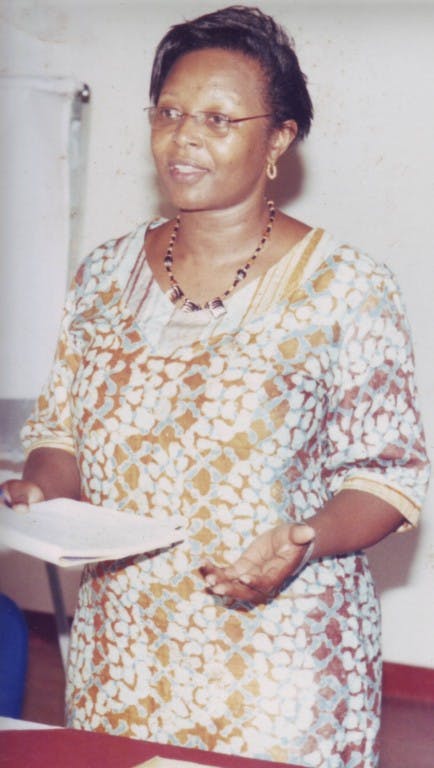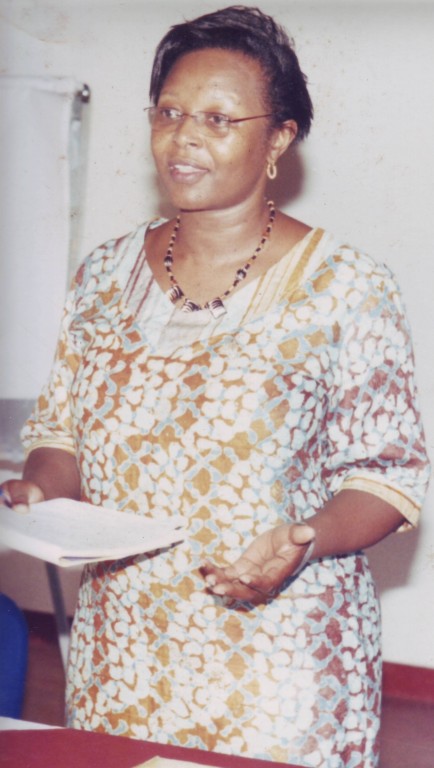Internet muscle for grassroots women in Uganda: the missing link.
Jan 21, 2015
Story


While some effort has been made in Uganda to get women onto the web, the gaps are still huge, not only in the rural, but also the urban area; most partner funding skips the urban area. The Ministry of Gender set up some few telecenters in a handful of rural districts, leaving out the now much vulnerable urban Kampala, hence marginalizing the poor peri-urban women in Kampala, who are hard hit by the cash economy.
The peri-urban community women leadership to which I am a part exhibits high levels of computer illiteracy in the first place which also relates to constraints of getting online. During a power point presentation at a recent capacity building workshop for Kampala women leaders, the computer technician was a male. When this technician was unable to fix a technical fault during the computer presentations, no one could trouble shoot as the majority of participants (95 out of 100 participants) were women. Further to this, internet access challenges and hesitancy to adopt the cheap, efficient mode of internet communication continues to plague planning and community development efforts of Kampala women leaders. The women leadership committee which is currently preparing for the 2014 District women’s day celebrations has continuously faced challenges of both mobilizing the committee for meetings and miscommunication simply because of keeping to the dark age way of doing things, instead of getting online. In a March 2014 Kampala city women leaders’ meeting, one of the members introduced a unique and forward looking approach of asking the members to indicate their e-mail accounts on an attendance form that was passed around. Half the group did not register, confessing they did not have e-mails; this was informative. In an earlier incident, a woman leader in concealing her true situation of not having an e-mail address offered an obviously fictitious e-mail account. This brings out stigma as another barrier to getting online.
As a first step, the women leadership, a sizable over 70% of whom are not internet compliant and other community members will be equipped with computer and internet skills, hence bridge information gaps, improve mobilization, including notices of meetings, program updates, via web use. This will cut communication costs for individuals and the leadership set up. Considering that some women are not conversant with English, yet are able to read and write in a local language, some of the sessions will be carried out in the local language (Luganda); most of the meetings for this group of leaders are conducted in Luganda. The female literacy is estimated at 63 percent according to the Uganda National Household Survey 2005/2006; Report on the Socio-Economic Module –Uganda Bureau Of Statistics). Further to this, the training will introduce women to and or expand their e-business opportunities and influence the careers of girls and women in technology and other areas hence create employment. Furthermore, computer IT skills will facilitate the women beneficiaries to write own documents and save costs, as well as safeguard women’s confidential information & documents. This will translate into reduced costs of trading, expanded business and social networks at the local, national and international levels. The women leaders through their umbrella Organisation the Women Council, will network with organizations such as a women led Savings and Credit Cooperative Society (SACCO) which has established a computer lab to ease access to computer services in a woman friendly environment and at reasonable charges. Further still, at the national celebrations of women’s day (8th March, 2014), the President who was chief guest mentioned ICT among the 5 priority sectors. This submission aligns with our identified need of web access; hence as women leaders, we will promptly lobby the Presidency and follow this up with a proposal to support our above suggested solution of training in order to accelerate internet access for women in our community and achieve global connectivity.




